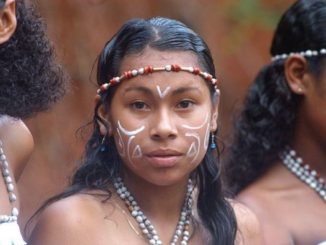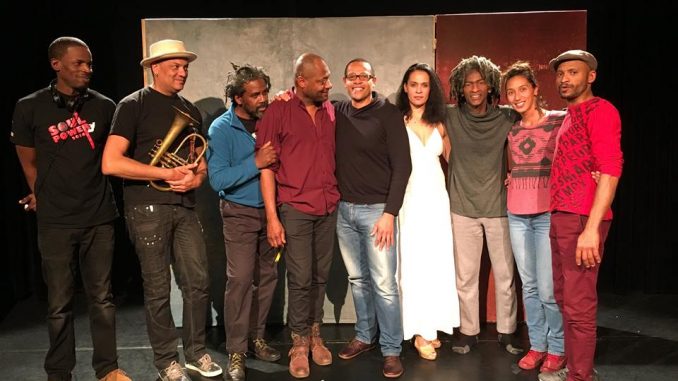
Last Sunday, April 16, it was the last performance of the play “Bòdlanmou Pa Lwen” at the Auguste Théâtre in Paris. For five days, the audience – largely composed of West Indians who live in France – took a trip to the mysteries of love expressed in Creole language.
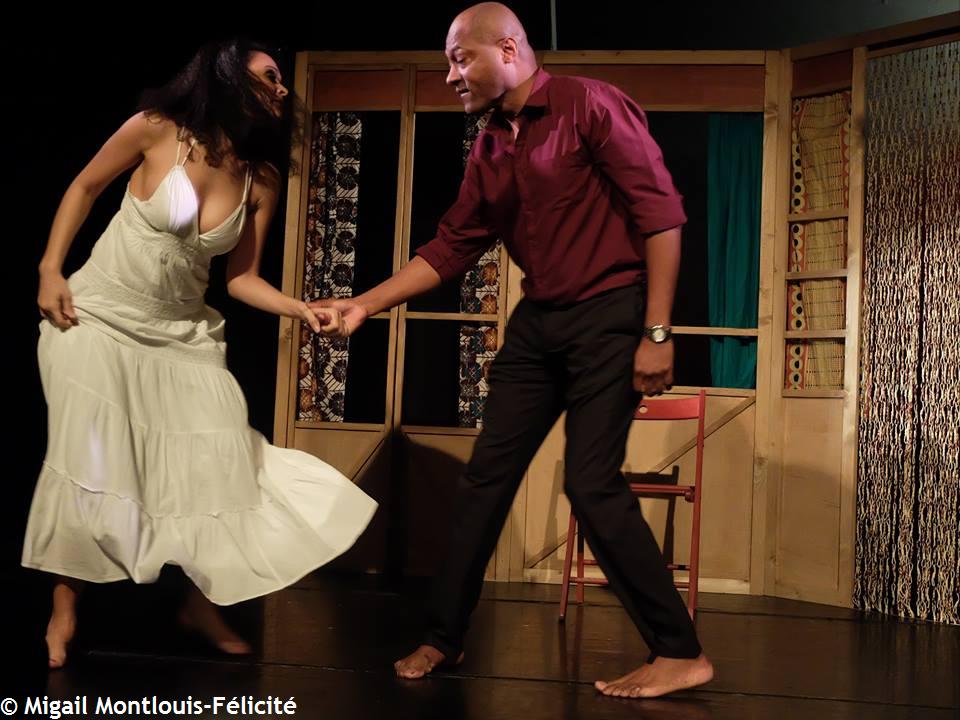
At the end of these various performances on the Parisian stage, the whole team felt satisfied with the audience’s reaction. “Bòdlanmou Pa Lwen” was all the time acclaimed.
The day after the first performance which took place on April 7, the author of the play, the Guadeloupean writer Franck Salin alias Frankito, said with joy and a bit of relief : “We must appreciate these moments of ecstatic pleasure. The audience who laughs, who cries, comments on the lines, heckles the actors on stage! Last night in Paris, the “Bòdlanmou Pa Lwen” premiere was sold out. L’Auguste Théâtre was full to cracking and the spectators were won over. It is the culmination of a long reflection, a long work, and a tremendous joy of seeing and hearing the actors, the light, the music, the choreographies harmonize and electrify the theatre. Thank you to everybody!”.
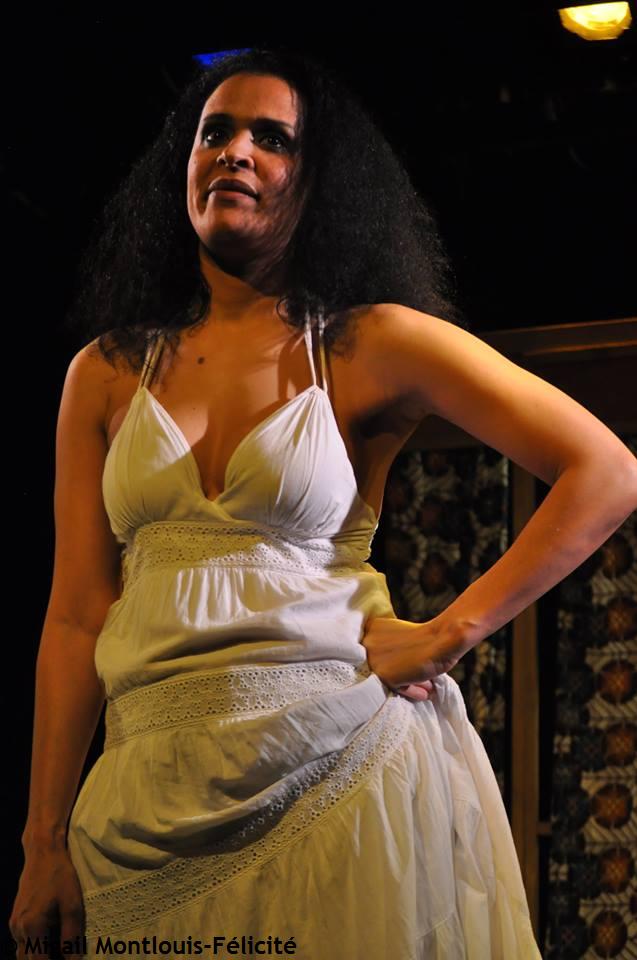
Irène Bicep, an impulsive, intuitive and a creative artist
“Bòdlanmou Pa Lwen” is a five act play about a passion between a woman (Léna) and a man (Jéra or Gérard, in French), two fine young people who have a good job. But, because of a lack of communication, they do not know how to express fully their feelings and when problems arise, they do not talk to each other to try to overcome them.
Irène Bicep plays the character of Léna. This actress, dancer and singer is defined as “an impulsive, intuitive and a creative artist”. Daughter of Guadeloupean actress and storyteller, Roselaine Bicep, she began studying dance at the SERMAC (Municipal Service of Cultural Action of Fort-de-France) in Martinique and then, she continued her training at Les Ballets Jazz de Montréal in Canada. She danced on stage with many artists (Zouk Machine, Touré Kunda, Mory Kanté, Yannick Noah etc.). In addition, she practiced singing and drama and acted in several plays including “La Tragédie du Roi Christophe”, directed by Ousmane Seck.“Theater is a complement to all the arts I practice. I like being in characters. I love it!”, she says.
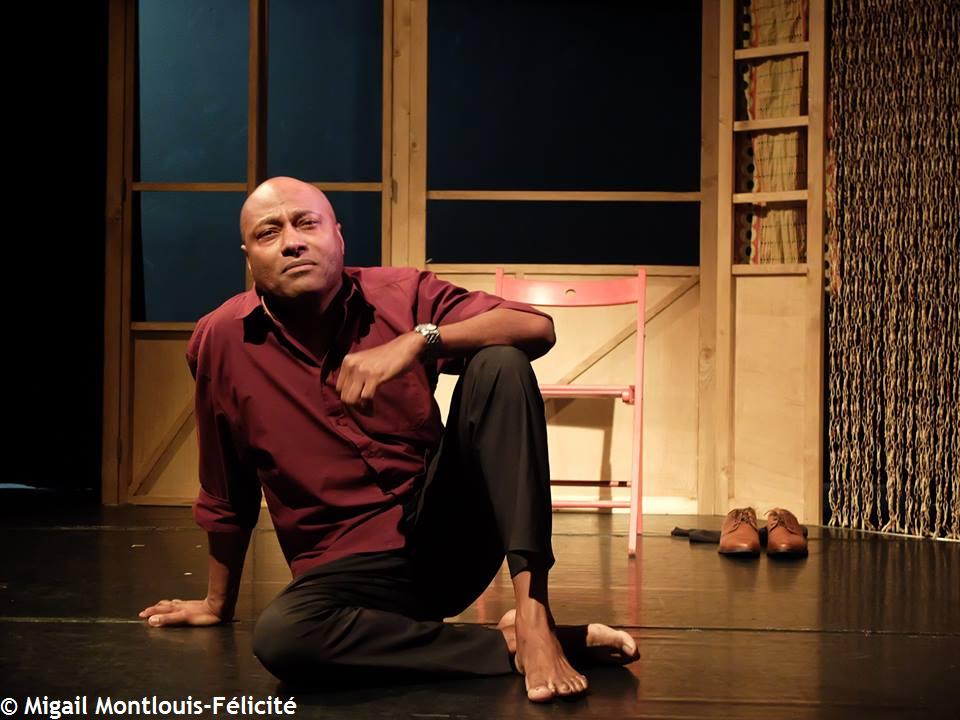
Christian Julien, a powerful, sensitive and generous actor
Christian Julien is Jéra. He is described as “powerful, sensitive, generous”, a comedian who represents the man in his full complexity. He was in high school in Martinique when he decided to be on the stage. So, he enrolled in the SERMAC to learn the basics of theater. He became Ousmane Seck’s assistant, then he flew to France, he took acting classes in the capital and, in 1992, he graduated from the theater of Paris 8 University. Since then, he acted in several French television movies and serials (Commissaire Moulin, Plus Belle La Vie etc.) and in plays such as “Boesman and Léna” by Athol Fugard.
“In the play, passion is magnified by music and dance. I called in the choreographer Max Diakok and the musicians Franck Nicolas and Jony Lerond to create them. And the trio surpasses itself “, says Franck Salin. The visual artist, Maud Bandou Hostache alias Solyé was responsible for the scenography.
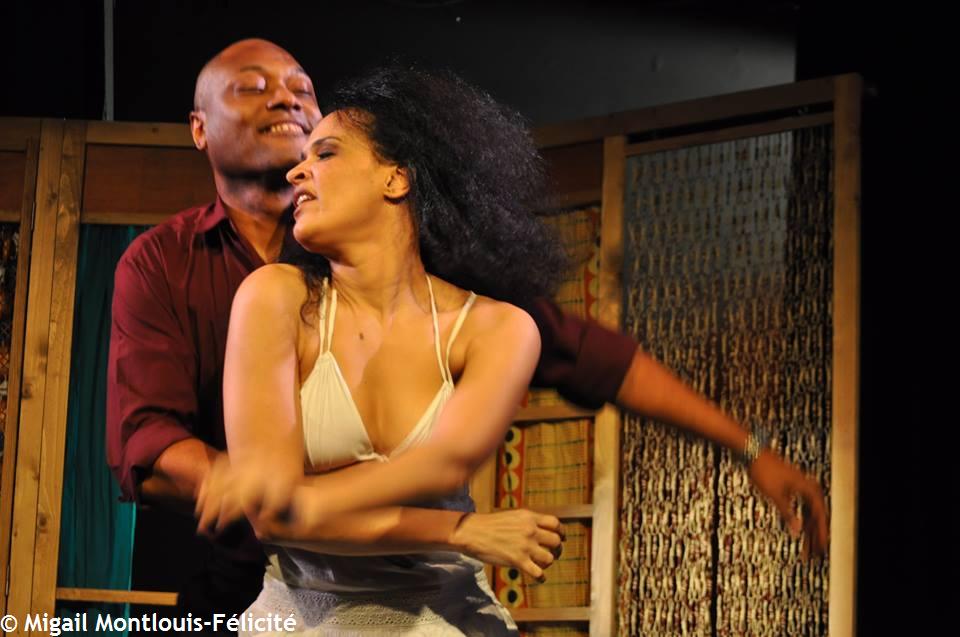
A play inspired by meetings on the Caribbean family
This is not the first time we hear about“Bòdlanmou Pa Lwen” which can be translated in English by “Love is Near” or “Love is coming up soon”. Indeed, Frankito wrote it over a decade ago following several public meetings that had as main theme “The Caribbean family” in which he participated. During these exchanges organized by the association CM98, they also focused on the Caribbean man’s infidelity (Guadeloupean and Martinican, more precisely), on his inability to fully assume his role as father and husband. It is not a new issue. According to some people, this can be explained by the fact that men, women and children slaves were separated by the masters, making it impossible to found a stable family, because the slave man was only limited to impregnate slave women as a stallion…
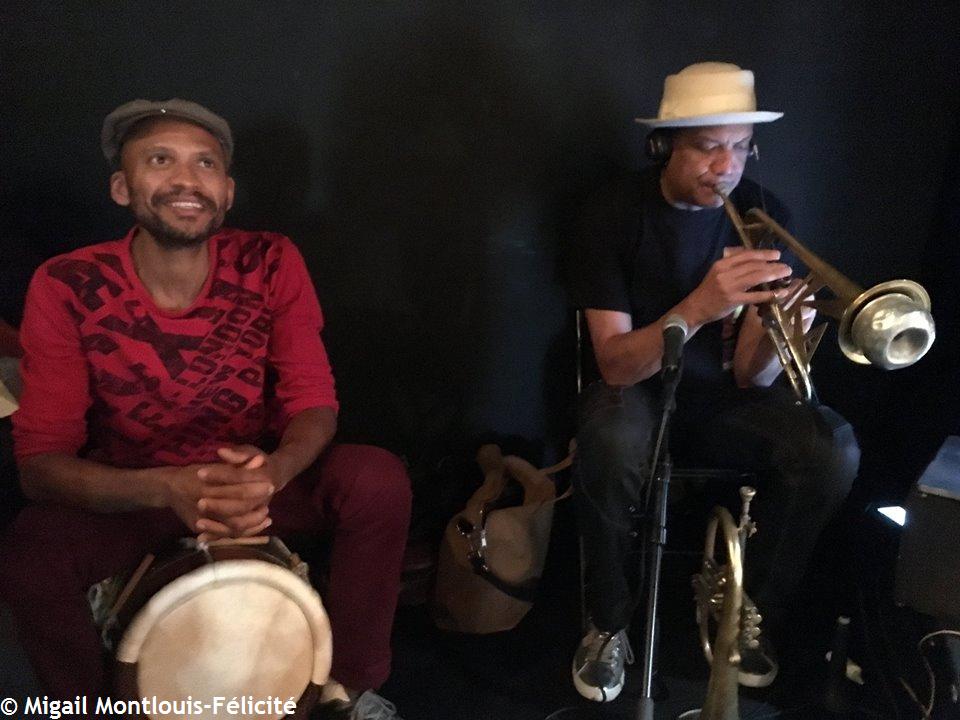
A militant work
Then, the author chose to write this play in Creole. It was a huge bet talking about love (this pure feeling) in Creole when we know the negative image that this language, born during colonization, can still have despite all the efforts of our intellectuals, our artists for full rehabilitation. In 2005, the text won two theatre writing competitions organized by Etc Caraïbe and Textes En Paroles after, it participated in reading cycles at the Salle Loyson in Le Moule and the Médiathèque Caraïbe in Basse-Terre, Guadeloupe and at the Théâtre Sorano in Toulouse, France. A mock-up of the first three acts of the play was also presented at L’Artchipel – Scène Nationale in the Guadeloupean capital.
Consecration arrived on Sunday April 7, 2007, when the work is read at La Comédie-Française on the occasion of the Caribbean Week (from March 28 to April 1, 2007), an event organized by L’Artchipel – Scène Nationale and La Comédie-Française.
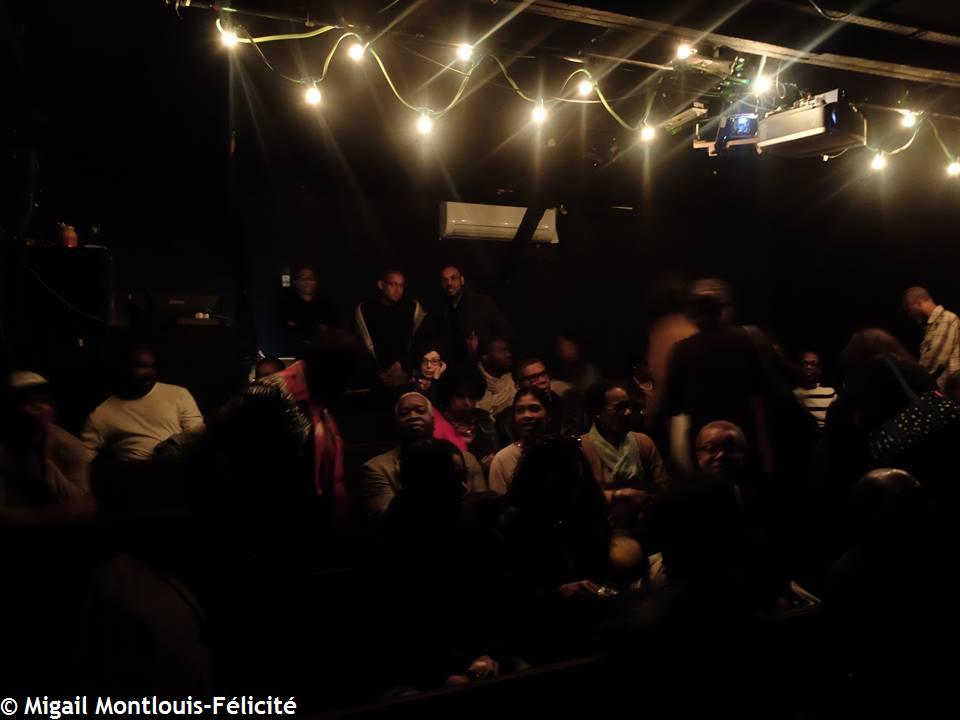
Creole, a language in movement
It was the first time that Creole words resounded in this famous cultural institution founded in 1680 and located in the 1st district of Paris since 1799. “I thought of the defiance which Creole had undergone, combated by the school of the Republic and often by ourselves, considered for a long time as a vulgar patois, I thought of the efforts made by all those who had come before me so that it is recognized and learnt”, Franck Salin told us in an interview last January. http://www.kariculture.net/en/franck-salin-inspiration-is-everywhere/
It took ten years for “Bòdlanmou Pa Lwen” to be fully presented to the public thanks to La Compagnie du Grand Carbet, an association based in Guadeloupe which aims to “promote performing arts, audiovisual creation and writings from the Caribbean and the French overseas territories by helping the authors of these regions to realize and make known their works”.
After this launch on this Parisian stage in front of Caribbean people who live in France,“Bòdlanmou Pa Lwen” will be staged in June at L’Atrium – Scène Nationale in Martinique and discussions are under way for performances in Guadeloupe.
The reaction of the Martinican and Guadeloupean audiences in the Caribbean is expected as Creole is used more in comic plays and not in dramatic works or for “serious” topics.
Photos : Migail Montlouis-Félicité



















